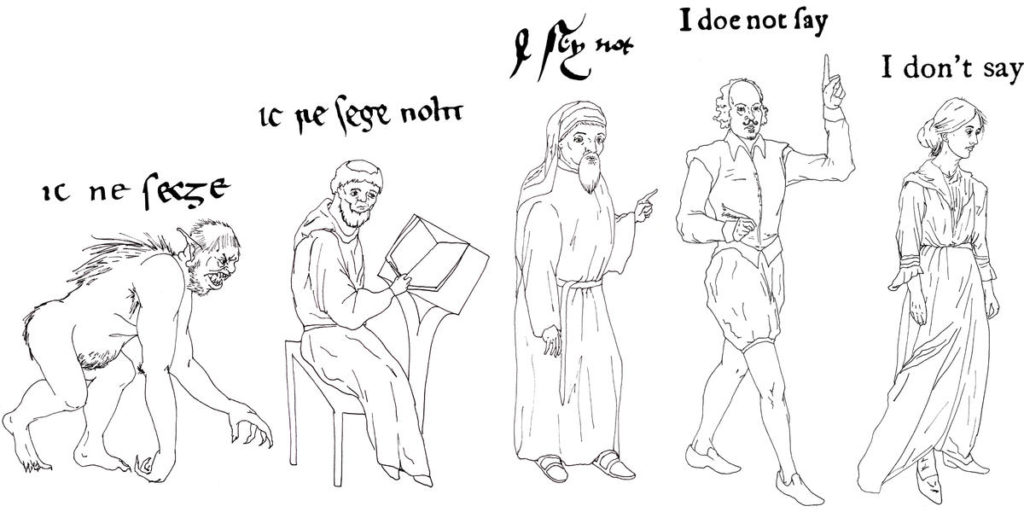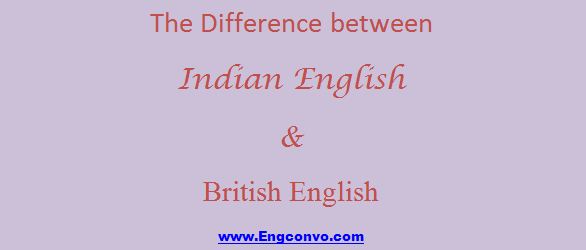The difference between Indian English and British English is observed in rare cases as Indian English has been derived from British English most of the times. British literature plays a major role to influence Indian English language. The difference appears most of the time in pronunciation, but spelling remains almost same as Indians still accept “organise” and “colour” instead of accepting the american influence of “organize” and “color”. But, there is a difference as some people find American language spellings with greatest priority due to the current use of Microsoft Office auto correction process.
So, its’s not always perfect to start searching for the points on the theme- Indian English vs British English, rather can note down the influential difference that Indian English received due course of our time.
Purpose of Language
The main purpose of any language is communication. Communication is a process which involves the participation of two the speaker as well as the listener. So what is important here is to know what is getting across to the listener and what is not. Hence, we strive to make our word symbols clear, so that other understand our feeling, opinions and thoughts. The language is a means through which a child contemplates the past, grasps the present and approaches the future. It goes without saying that the language plays an important role in the mental, emotional and social development of a person. Though English is a foreign language, it occupies a unique position in our country. Whether we are at home, in the state or out of it, in the country or away from it, English is important and it continues to hold a unique position in our lives.
Story of Indian English
The story of English in India goes back to Macaulay’s famous Minutes of 1835 which was the time when the foreign plant of English was sown in India’s soil. He wanted to create a class of persons, Indian in blood and colour, but English in taste, in opinion, in morals and in intellect. He said that English stood pre-eminent among the languages of the west. English soon became the official language of India and it enjoyed a very prominent and privileged position in Indian educational system and life till the attainment of independence. It was taught as the compulsory subject both at the school and college levels.
A reaction against the supremacy of English was noticed only after 1857, when India was swept by a violent anti-British feeling. This was the national awakening in the country, striving for independence. The first reaction of the people in independent India was to dethrone English from its exalted position that it had enjoyed during the British rule. Thus it received a hostile treatment not only at the hands of our political leaders but also some eminent scholars. The father of the nation Mahatma Gandhi was very critical of educating the Indians in English language because learning an alien language deprived them of their national respect and resulted in slavish behaviour.
Evolution of Indian English: Past to Present
The transmission of one language into another country usually happens as a result of contact and interference of two or more languages. In the case of “Indian English” the language contact based on the colonization of the British in India. The first contact between the English and the Indian language took place in the beginning of the early 16th century, when the British started to establish their trading posts in India and brought English “to a new territory”. Due to the massive influence of the English colonization in India, in the early 1800’s a large number of Christian schools were founded by English missionaries. This evolution has created the major difference between Indian English and British English. The steps of advanced communication has relevantly been derived from British Language

h
Interaction with Vernacular Languages
As the use of English penetrated the different sections of the educated Indians, a new variety of English emerged. This variety of English had a very distinct Indian flavour and a number of words of vernacular origin were absorbed in English, e.g., Brahmin, Coolie, jungle, gherao and so on.
Language studies were based on literature and grammar and the means of studies was the grammar-translation method. The spoken component of the language was not practiced. The emphasis was given on correctness and complete sentence construction. So, if you notice the content Indian English vs British English.
Influence of British English on Indian English
As English is now considered as the global language all over the universe, British English is the ideal prospectus followed by the world to learn English. Hence, English Communication is very important to be connected socially and globally, and also plays and vital role in English Business Communication.
The phonology of British English and Indian English encounter a huge difference during articulation of the language.
For Example: In Indian English the pronunciation of “r” is articulated giving strong stress to the alphabet, unlike in British English the letter “r” is not pronounced with high stress at the end of the word.
So, this slight change in the phonological aspect of the language, changes the pronunciation and the audibility becomes more elite and attractive, which attracts a mass of individuals and country towards British English.
Present Scenario of English Language
Twentieth century witnessed great advancements in science and technology and this enabled many new ways of sharing information and doing business. India’s international commercial activities led to the need for acquiring proficiency in English as an international language. Now, English was not just the language of the administrators and policy makers but also became the language of the business and professional class. Hence, British language also helped to get effective corporate communication skill.
In India, the English speaking population is only about 3-4%, but with India’s massive population, India is among the top three countries in the world with the highest number of English speakers. In terms of numbers of English speakers, the Indian subcontinent ranks third in the world, after the USA and UK. Most English speakers in India are second language speakers, in 1971, it was estimated that the rate of bilingualism in India was 13% and 99% of English speakers are second-language speakers. English is the most widely spoken second language, followed by Hindi. Most interactions in the spheres of life take place in English.
Conclusion
In the linguistically plural settings of India, English often acts as the link -language among people of different dialect. For many educated Indians English is virtually the first language. Thus in the present context English is playing a vital role in bringing together people from different regional languages for a closer exchange of social, educational and administrative network of India . It provides a linguistic tool for the administrative cohesiveness of a country.
These language proficiency is available in many of the online spoken English classes of India.

